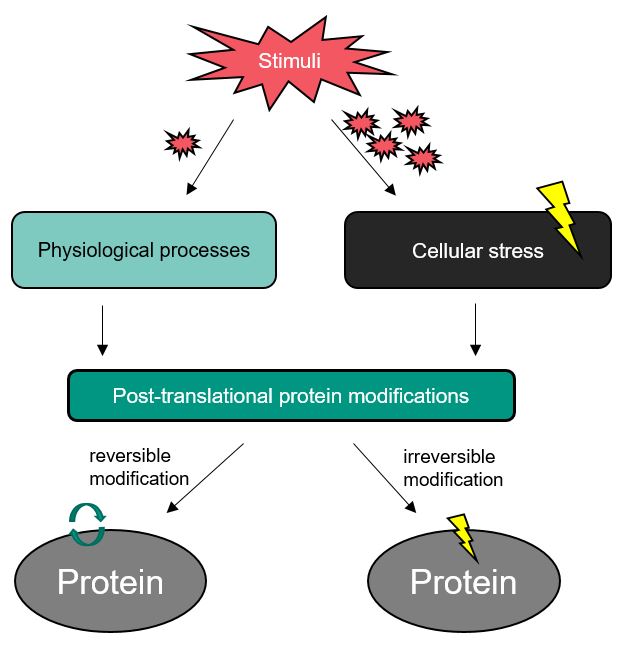Proteomics
The biochemical study of the entire proteome of a cell or organism is called proteomics. In general, proteins are macromolecular cell compounds composed out of amino acids. Due to their characteristic three-dimensional structure, each protein has individual functions with importance for the survival of the cell and ultimately of the entire organism.
Proteins represent direct or indirect targets for toxic or carcinogenic metal compounds, whose influence on cellular signaling pathways is a subject of current research.
The proteome is generally dynamic. Due to varying environmental conditions, proteins can be post-translationally modified. These modifications can be physiologically relevant, in particular if they can be reversibly degraded such as phosphorylation. However, irreversible modifications can also cause protein damage and alter protein functionality.
Proteins can be analyzed using various biochemical methods. Nano-HPLC coupled with high-resolution mass spectrometry offers the possibility to analyze small amounts of peptides from a complex cell proteome and to detect, identify and assign post-translational modifications to a protein.
Currently, we are investigating the influence of various metals and trace elements, such as arsenic, copper, and selenium on the cellular proteome. Hereby, the cellular redox regulation is of special interest.

